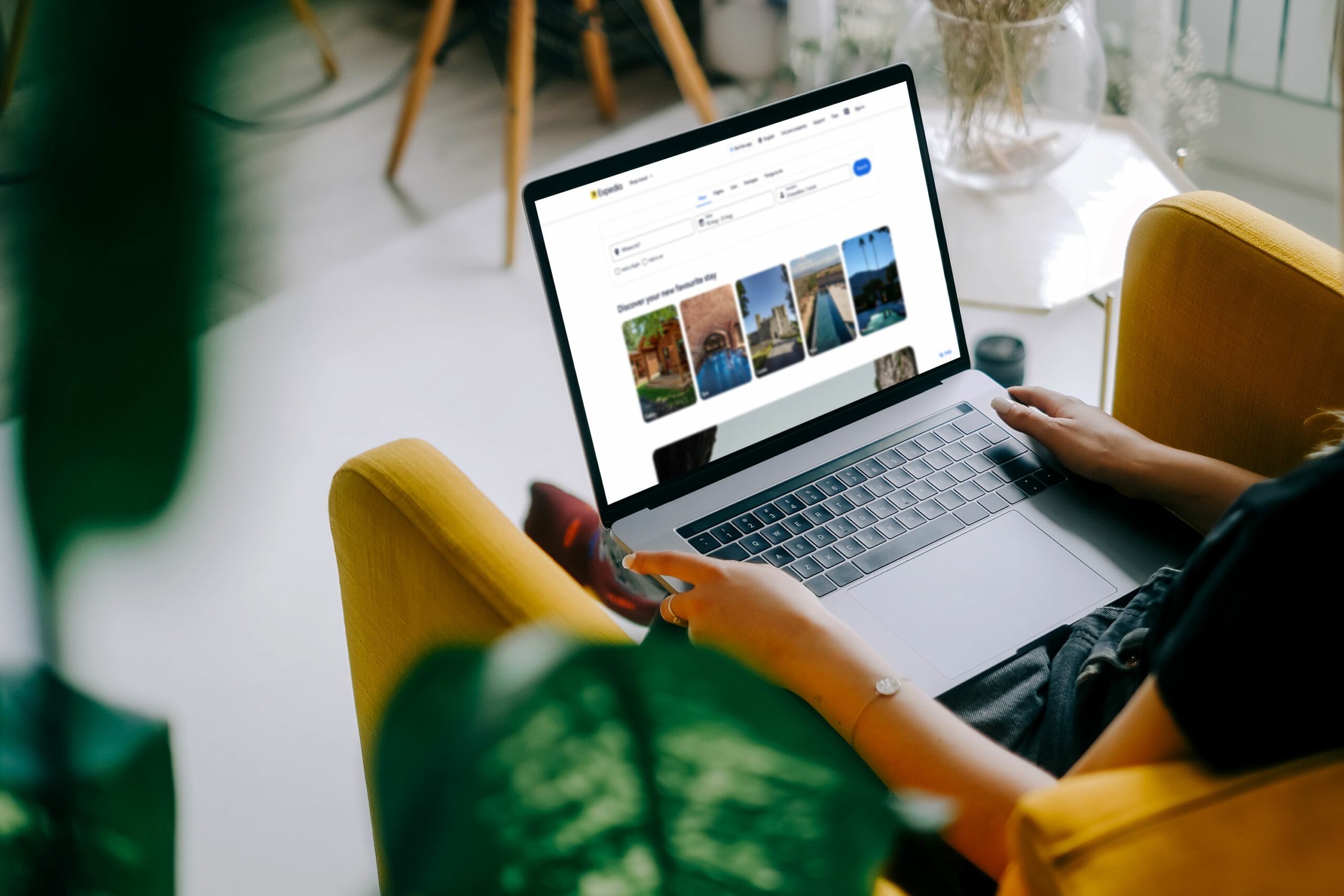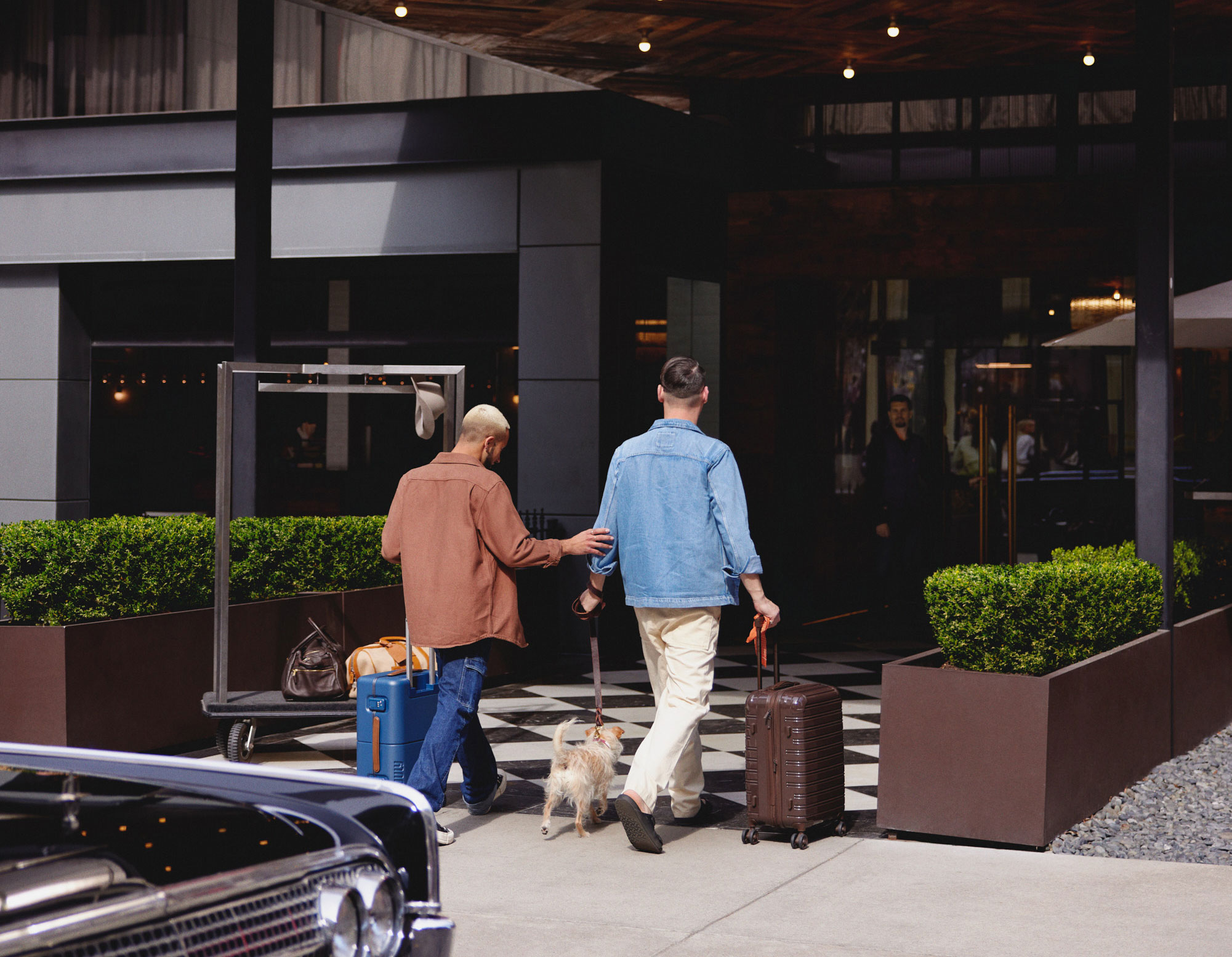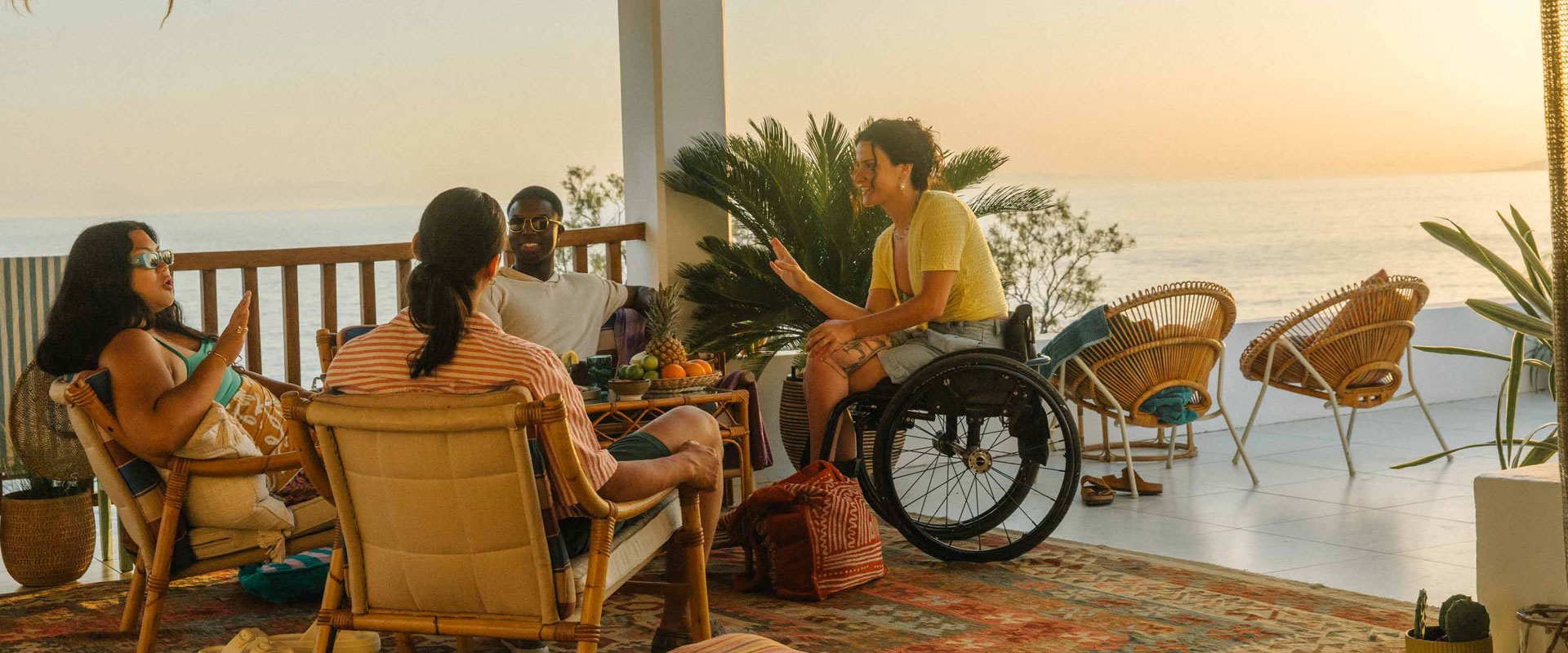August 28, 2024
At Expedia Group, we operate with a core belief that travel is a force for good and a mission that travel should be accessible for everyone, everywhere. Like many industries, travel has not been accessible to people of all abilities and backgrounds, and the desire to challenge that continues to shape our core belief. Despite positive intent, these challenges can range from physical barriers for people with disabilities to safety and acceptance concerns for people of color or those in the LGBTQIA+ communities and beyond.
The Journeys for All: An Expedia Group Study on Inclusion in Travel offers insight into the shared experiences of underserved travelers who face significant barriers to accessing products or services. These challenges stem from factors such as race, ethnicity, gender and sexual identity, disability, economic status, and geographic location. The study reveals that for 42% of underserved travelers, their identity impacts what travel options they choose and where they feel comfortable traveling.
By examining the travel experiences of Black, Latino, LGBTQIA+, and travelers with disabilities — from planning and research to on-property — we’ve identified challenges and pain points that need the travel industry’s attention and action to make travel more accessible for everyone.
Together, we have an opportunity and the imperative to improve travelers’ experiences, helping them feel safer, respected, and more welcome. Action is rooted in understanding, and this research is part of our commitment to help the industry — and Expedia Group — act.
We pulled together key insights to highlight the importance of inclusive advertising and share best practices for creating inclusive marketing campaigns.

Traveler identity impacts choice
Underserved travelers represent a growing population that makes up a larger share of the global travel market each year. As their impact and influence on the travel market continues to grow, it’s crucial for travel businesses to build strategies that embrace inclusive practices and prioritize welcoming travel experiences.
For underserved travelers, their identities impact their travel choices more than the general population — from their trip destination and where they stay to how they get there. Embracing diversity and inclusion is not only best practice — it’s also smart business.
Brands that actively support diversity and inclusion are more likely to see repeat business from these traveler groups, as underserved travelers, including Latino travelers (57%), Black travelers (53%), and travelers with disabilities (53%), are more likely to book again with brands that promote diversity, more so than the general population (48%).
What this means for advertisers
Underserved travelers prioritize brands that promote diversity and inclusion, so it’s important to reflect your commitment to these values at every traveler touchpoint, including in your marketing efforts.
When using imagery to highlight your destination or property, select diverse images that encompass a variety of ages, genders, race, and more. Use the ability our solutions offer to create customized content that speaks directly to the diversity of travelers you’re trying to attract. By developing an inclusive marketing strategy, you’ll not only broaden your audience but also build trust and loyalty among this group of travelers.

Why inclusive advertising matters to travelers
Travel brands have many opportunities to forge authentic connections with underserved travelers and promote their commitment to diversity and inclusion. Representation in travel advertising is especially important and can make or break traveler choices, including where they travel to and what accommodations they choose. Three-fourths (76%) of underserved travelers say it’s important for travel ads to represent people like them. That number can be as high as 82% for Black travelers and 81% for Latino travelers.
However, only 16% of travelers — both underserved and the general population — feel that travel promotions represent them authentically. This lack of representation can be the difference between them traveling or staying home.
Among all underserved traveler identity groups, representation in travel promotions leads to a higher likelihood of taking a trip, as much as 78% of Latino and 73% of LGBTQIA+ travelers. This is even more pronounced for travelers with intersectional identities. Latino travelers with disabilities (80%), LGBTQIA+ travelers with disabilities (76%), and Black travelers with disabilities (69%) said that seeing people like them in promotions increases their likelihood to travel.
What this means for advertisers
Underserved travelers want to see people like them represented in travel content because it makes them feel welcome and understood, which can inspire them to explore new places and try new experiences. Integrating diversity in your advertising strategies in an intentional and authentic way will go a long way for these groups and increase their likelihood of booking travel with you.
To develop authentic inclusive advertising campaigns, it’s important to represent a variety of identities and experiences, as well as acknowledge intersectionality in your campaign imagery and messaging. As you create your campaigns, be mindful of resonance and relevance, and align your messaging and tone with a diverse set of travelers that spans race, gender, age, abilities, couples, and more.

Guidelines and best practices for an inclusive marketing strategy
Underserved travelers want to feel welcomed, safe, and accepted, and representation matters when they are shopping for and booking travel. One way to help these groups feel understood and embraced is by improving representation in your advertising.
How can your brand be more inclusive? Below is a snapshot of some best practices from our Inclusion & Diversity in Travel Advertising Guidelines to keep in mind as you build out your inclusive marketing strategy.

Use diverse imagery
Be thoughtful in representing a variety of perspectives and use diverse imagery throughout your content. If you are using multiple photos in a piece of content, always keep inclusion and diversity in mind, and strive to respect cultures worldwide and depict them authentically and respectfully.
- Avoid using images that may portray local cultures as a parody or mockery.
- Avoid using stereotypes and consider whether a character portrayed is in a position of power.
With display advertising, you can work with our team to develop thoughtfully built ad placements featuring diverse imagery to resonate with travelers of different backgrounds and abilities.

Use inclusive and respectful language
Use inclusive, welcoming, and respectful language across all marketing and listings. This includes using gender-neutral language that is not biased toward a particular sex or social representation of gender.
Avoid using language that could result in a negative connotation. For example, rather than saying you offer “white-glove service,” pivot to more neutral messaging like “top-tier service.” Don’t use language that connotes helplessness, dependency, or defeat. Instead, use language that respects people with disabilities as active individuals with control over their lives.
Our Travel Spotlights offer a highly visual and interactive way for travelers to explore and engage with your brand. Whether you’re highlighting unique cultural experiences that your destination has to offer or showcasing special events and activities around celebrations like Pride Month, we’ll work with you so that your landing page uses inclusive and respectful language to help everyone feel welcomed and valued.

Focus on accessibility
For more inclusive hotel advertising, call out amenities and accessibility for travelers of all backgrounds and abilities, such as non-barrier rooms, auxiliary visual alarms, or on-site restaurants. TravelAds Sponsored Listings allow you to customize your advertising copy and images to highlight your hotel’s accessible amenities, reassuring travelers that they are welcomed and can be accommodated at your property.
If using video in your advertising, feature closed captioning and subtitles. For general copy and design, use contrasting font and background colors to ensure copy is clear and easily legible, and if you use hashtags, capitalize the first letter of each word, for example, #FlyWithXyzAir.
Download the full guide for more tips and recommendations on how to build more inclusive marketing campaigns that represent and cater to all travelers.

Inclusive advertising on the world’s leading travel media network
We all recognize the significance of creating a more welcoming and accessible travel industry. By better understanding the needs, preferences, and challenges of underserved travelers and their expectations of the travel industry, you can create more meaningful connections with and better serve diverse audiences.
Our experts are here to help guide your strategies and effectively connect you with underserved travelers across our powerful platform. We also offer solutions that are compatible with advertisers of every size and budget to help you bring your inclusive advertising campaign to life. We can even help connect you with other brands that share your marketing goals for a strategic co-op campaign that will help you amplify your marketing spend to make a larger impact.
If you’re wondering what representation in marketing looks like, watch our immersive video series we created with Visit Panama to promote the destination to travelers looking for their next trip. One episode showcases how travelers of different abilities can experience Panama and features a blind traveler as he explores different locations and activities in the region through his senses of smell, taste, touch, and hearing.
Learn more about underserved travelers and their expectations of travel brands by downloading Journeys for All: An Expedia Group Study on Inclusion in Travel. To discover the array of advertising solutions we provide and how your brand can create welcoming and accessible travel content, contact one of our experts today.




